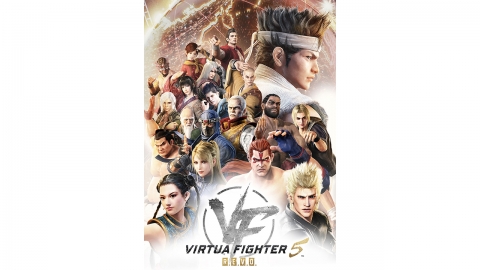□ Broadcast Date: November 22, 2024 (Fri)
□ Host: Announcer Park Gui-bin
□ Castor: Park Jong-gil, Chairman of the Korea Labor Welfare Corporation
* The text below may differ from the actual broadcast content, so please check the broadcast for more accurate information.
◆ Announcer Park Gui-bin (hereinafter referred to as Park Gui-bin): It's time for an issue invitation. There was some controversy over industrial accident insurance during the National Assembly Environment and Labor Committee's parliamentary audit. Compensation for industrial accidents is being delayed too much. It was pointed out like this. Let me ask this person directly what happened. We have Park Jong-gil, chairman of the Korea Labor Welfare Corporation, in the studio. Welcome.
◇Park Jong-gil, Chairman of the Korea Labor Welfare Corporation (hereinafter referred to as Park Jong-gil): Hello. I'm Park Jong-gil, chairman of the Korea Labor Welfare Corporation.
◆Park Gwi-bin: You didn't come alone and what's in front of you that stands out?
◇Park Jong-gil: It is the mascot of our Korea Labor Welfare Corporation with the hope of giving hope to our workers. The name is Hope.
◆Park Gwi-bin: It's so pretty. The color is also very hopeful and smiling.
◇Park Jong-gil: I'll give you one when I go later. Thank you.
◆Park Gui-bin: I think I'll get a hope later and I'll be able to start 2025 with hope. He is the chairman of the Korea Labor Welfare Corporation. Actually, I'm used to it. It's my name that we've heard a lot about rather than most government departments, but I think it would be better if you could introduce yourself to what kind of work you're doing.
◇Park Jong-gil: I'm very grateful that our host heard it. Since the name is a little big, it tends to give a little confusion about identity. For example, you can do health insurance by the Health Insurance Corporation or what is the Labor Welfare Corporation like this.
◆Park Gui-bin: I just thought that everything must be about work.
◇Park Jong-gil: It's an organization under the Ministry of Employment and Labor. As I felt from the name, we provide various services for worker welfare. It can be divided into two main categories. There can be a number of risks in the workplace. Labor insurance is now said to avoid being sick or injured, or losing your job. There are now two main types of labor insurance. There are industrial accident insurance and employment insurance. I do those two things on one side. We give comfort to the workplace. We talk about labor insurance like this. Also, although they are working in one part, there are people who have poor welfare and living conditions. So we provide various welfare services for these people. It provides 1,300 work daycare centers nationwide, which are the biggest difficulties for working women, such as lending living security funds or paying wages to unpaid workers.We're also doing retirement pensions. You can understand why the Korea Labor Welfare Corporation named it the Korea Workers' Compensation and Welfare Corporation, not the Industrial Accident Insurance Corporation or the Employment Insurance Corporation.
◆Park Gui-bin: I see. You can think of it as a department that is implementing various policies for the welfare of all workers. As I said briefly at the beginning of this time, I would like to ask you about what happened last time at the parliamentary audit. Did you get a little pointed out? What kind of comments did you make and how did you say this?
◇Park Jong-gil: First of all, I would like to apologize to the workers. If we get sick or injured while working, we have to compensate you as soon as possible, but there were some parts that we couldn't do, but we were pointed out a lot.
◆Park Gui-bin: Industrial accident insurance is being delayed too much. It was pointed out like this.
◇Park Jong-gil: So now that you know that, you'll understand. Last year, we processed 163,000 cases. Previously, most of them were injured on the job, and the disease was only a few days ago, but interest in the disease has increased recently, and the number of disease applicants is increasing very much. So what I want to say here is that 80% of the industrial accident applicants are still injured. Because work injuries are clearly related to work, most of them are handled smoothly and well within a week or two. Now it's a work illness that's the problem. Suicide, cerebrovascular disease, musculoskeletal disorders, and hearing loss are very difficult to determine whether they are sick or sick for work or are caused by personal characteristics.
◆Park Gui-bin: We need a confirmation process.
◇Park Jong-gil: That's right. So we didn't do it ourselves, but we had to send it to the hospital, do epidemiological investigations, and get examined, but because there were so many applications suddenly, a bottleneck occurred here. Anyway, we have to control those areas, but since the procedure is complicated and many applications are received, there are some delays in the processing period in some areas of work diseases, and some pointed out that we should find ways to improve them.
◆Park Gui-bin: So, regarding the accident and injury at work, it is correct that compensation is being made quickly and on time, but there is a little delay to check whether the handling of the disease at work is related or a factor. But you said that the number of applications for diseases at work is now increasing rapidly. Why is that? Please point this out for a moment, too.
◇Park Jong-gil: First of all, the public's interest in health has increased a lot. In addition, industrial accident insurance is social insurance, but in fact, the level of compensation is very high. That's why it has a very strong characteristic of liability insurance. The user is also paying 100% of the insurance premiums. And the level of compensation is very high every day. In addition, the court has recently shown a slight tendency to be lenient on this industrial accident insurance. In the past, it was related to suicide, psychosis, musculoskeletal, all muscles and bones in our body. So a lot of people usually get sick when they get older, right? But in the past, there were a lot of people who didn't apply because they thought it wasn't related to work, so they're applying a lot now. The court also tends to allow this to be widely recognized if there is a possibility. As a result, occupational diseases have increased by about 70% over the past three years. In particular, noise-induced hearing loss increased by 200%. Isn't there a musculoskeletal system? In the spine and waist wrist, this part has also increased by 50%. So these are now increasing a lot recently because workers' interest in certain diseases, some trends in the courts, and the level of compensation is very high, these things overlap and expectations for compensation are increasing very much at first.
◆Park Gui-bin: I see. So in the past, I thought that if I had a disease, I might just get sick because of the disease. Now, many people's perception has changed a lot, and in fact, it's right to find their rights. So, the increase in applications can be seen in a good way, but now the problem has suddenly increased, and the delay in compensation has inevitably occurred. Are you saying this now?
◇Park Jong-gil: If we tell you one thing, industrial accident insurance is no longer an infinite flood. Financial resources are under control. So this money should be used for people who are really sick or really hurt, but this is what we have in the court. In the case of such a medical causal relationship, it is required to apply for work and medical impressions, but we see it more strictly, and there is a difference in opinion that the court should focus on the characteristics of social insurance and make a more generous judgment in the state. So, as we are a little strict in that regard, there are some complaints about us in the National Assembly and some labor unions.
◆Park Gui-bin: I think it's a necessary procedure to accurately examine the causal relationship because it's right for those who need it to be compensated. But anyway, it's delayed, so in fact, it seems necessary to shorten the period of shortening the causal relationship. Then what kind of room do you have?
◇Park Jong-gil: I totally agree. Regardless of the reason, I think so. I think it's very bad to delay the administration in order to deal with it accurately. Because if we don't recognize industrial accident insurance, there is a procedure to file a lawsuit or object to it, but if we continue to have it, we have to wait.
◆Park Gwi-bin: And the person who applied?
◇Park Jong-gil: That's right. We have to wait until we judge you. We generally have three ways to deal with something quickly. One is the part of streamlining internal capabilities. The second is how to utilize external resources when internal resources are limited, and the third is how to improve procedures. I'm sorry to use this English, but I'm now calling it insourcing, outsourcing, and processing. First of all, we asked for more manpower because the number of cases is increasing so much, but this is not working very well. Now that we are aiming for a small government, we are rearranging our manpower. So, we're going to deploy more manpower on the compensation side. Then, for the recent increase in work diseases, for example, noise-induced hearing loss, a team dedicated to musculoskeletal muscles, or a base center to maximize internal resources. Second, you need to get help from the hospital to check the relevance of your work. I'm thinking of drastically increasing the number of hospitals that receive this help. So, I also use external specialized institutions for epidemiological investigations. So I'm thinking about ways to expand the use of external resources more. Third, standardization procedures are simplified and automated. In the case of muscle systems, for example, in the past, it was very complicated to be a disaster investigation sheet, but standard videos can be processed very quickly if labor and management agree. We are improving these methods now, such as how to simplify the procedure for epidemiological investigations, and how to simplify the noise-induced hearing loss investigation, and the effect is that the processing period is being shortened from July.
◆Park Gwi-bin: Yes, I see. Regarding the handling of industrial accident insurance compensation, I think it will be improved a little more in the future.
◇Park Jong-gil: If you keep an eye on us, we will improve a lot.
◆Park Gwibin: I see. In a way, the largest proportion of the Korea Labor Welfare Corporation seems to be industrial accident insurance. Now that I hear what the chairman is saying.
◇Park Jong-gil: We spend about 10.5 trillion won a year. More than 7.5 trillion won and 70% are mainly spent on industrial accident insurance.
◆Park Gui-bin: Then it would be good to take a brief look at industrial accident insurance. What does it mean?
◇Park Jong-gil: I usually talk about the Industrial Revolution, but in the 18th century, as the Industrial Revolution began on the European side, our living structure changed. From the worker's side to wage labor, so what this means is that if you can't work, individuals and families will be very unhappy. So, in Europe, the most important system was to quickly treat and compensate those who were sick or injured while working in the beginning of the industrial society, and to return to work again. So now industrial accident insurance has been introduced. As a result, Korea was the first to introduce industrial accident insurance in 1964 while developing the economy in the 1960s. There are four types of social insurance in Korea. There is health insurance, national pension, employment insurance, and industrial accident insurance, and industrial accident insurance is the oldest. Introduced in 1964, so it means that if people who work get hurt while working, they treat them quickly, protect their lives during that period, and return to work.
◆Park Gui-bin: I think I understand why industrial accident insurance was introduced first. Then, what benefits are there if this industrial accident insurance compensation is processed?
◇Park Jong-gil: Many people think that they have health insurance and do they need industrial accident insurance? I'll compare it and explain it. First of all, we fully support the cost of treatment. Isn't health insurance on its own? And the scope of treatment is getting wider. And doesn't your life become tight because you can't work while receiving treatment? And 70% of my salary is supported as a vacation pay. It's a system that doesn't exist in health insurance.
◆Park Guivin: Do you cover 70% of your salary's living expenses?
◇Park Jong-gil: Giving living expenses is the key. And now, if a disability remains after treatment, disability benefits are given. If you die, you will be given bereaved benefits. I'll give it to you as a pension. So your child is paid until the age of 24 and others are paid the same. In addition, the biggest feature of industrial accident insurance is the part of returning to work. Therefore, we support various rehabilitation services and rehabilitation treatments that are not recognized by health insurance. So there are several programs that support you to return to work so that you can return to work.
◆Park Gui-bin: The insurance premium for industrial accident insurance is fully paid by the user.
◇Park Jong-gil: That's right.
◆Park Gui-bin: People who listen to this show probably think this. Then I'm also working right now, and I think you're wondering if this is a situation where I can benefit from my workplace. Is industrial accident insurance a benefit that anyone can get?
◇Park Jong-gil: Not everyone. Workers.
◆Park Gwi-bin: If you're a worker, can you do non-regular workers or freelancers?
◇Park Jong-gil: Part-timers can also get it. And if you look at it, there are sometimes cases where 3.3 workers are turned into workers, but they are turned into private business owners. Even in that case, please apply to us first. So if we look at it and say that it's a worker, even if the employer doesn't sign up, it's a natural sign-up, so we retroactively sign up for all of them. So there is absolutely no problem with workers being compensated. However, the business owner will have to pay the insurance premium retroactively. There are parts like this, too. Second, there are cases where you are not a worker, but a worker and have characteristics of a private business. Our host is also probably a freelancer, but I don't know.
◆Park Gui-bin: I used to freelance as well. That's why I know freelancers well.
◇Park Jong-gil: For example, people who have a private business license but are supervised by delivery services, quick service, insurance agents, and golf course caddies are called labor providers. A contract is a contract, but it only provides labor. These parts that provide other things now have the characteristics of half workers and half private businesses, so we also subscribe to all industrial accident insurance. However, the premium is half and half. Since there is no clear business owner, 50% is paid to the contractor and 50% is paid by himself, but joining is mandatory.
◆Park Gui-bin: Aren't there many types of regular workers? What you just pointed out is that you mentioned delivery drivers, quick service drivers, caddies, but is there a set scope for this special employment?
◇Park Jong-gil: So it's good to do everything now, but in the end, there is a cost-sharing problem and it's not easy to define various concepts, so he said a good thing for now, but we called a special employment type worker a special high school, and we recently changed him to a labor provider.
◆Park Gui-bin: The people who do the work I heard as an example.
◇Park Jong-gil: So not everyone is registered. Most of this applies like this, but some have not yet been registered. Among the special high schools.
◆Park Gui-bin: So I'm working as a freelancer and you wonder if I can get industrial accident insurance at my workplace. Is there any way I can check that?
◇Park Jong-gil: So if you look at the Industrial Accident Insurance Act, it's all listed. If you look at the enforcement ordinance of the Industrial Accident Insurance Act, you can just call them without having to do so.
◆Park Guivin: Where can I call?
◇Park Jong-gil: There are about 64 branches of the Korea Labor Welfare Corporation nationwide. If you don't, you can just search the internet.
◆Park Gui Bin: That's right. You can find a lot of information these days.
◇Park Jong-gil: I think it's most convenient for you to call.
◆Park Gui-bin: I think you'd better call the Korea Labor Welfare Corporation and ask about it. You can get industrial accident insurance. Non-regular workers and freelancers are also in the form of special employment, but I think they'll be curious about whether I'm applicable, but there may be people who don't, so you'd better check it out. Chairman, we have about 40 seconds left. You gave a brief overview of the major projects that the Korea Labor Welfare Corporation is doing today, but I know you are doing a lot other than this, but I haven't been able to point out all of them. If we get another chance, we'll look at other things.
◇Park Jong-gil: I really wanted to tell you. There is a small and medium-sized retirement pension fund system.
◆Park Gui-bin: If you have time next month, please come out one more time.
◇Park Jong-gil: It's a very good system with high returns, so we give you a lot of benefits. Check out the green seeds on the Internet.
◆Park Gui-bin: I wanted to talk about the green seeds of retirement pension today, but we have only 20 seconds left, so we can make an appointment so that we can invite them again next month, and finally, please briefly tell us your vision and future direction for the Korea Labor Welfare Corporation.
◇Park Jong-gil: As I said to everyone, we provide a variety of services to give comfort to the workplace and stabilize life for the happiness of workers. So, I would appreciate it if you would be interested in the Korea Labor Welfare Corporation service and use it a lot.
◆Park Gwibin: I see. So far, I was Park Jong-gil, chairman of the Korea Labor Welfare Corporation. Thank you, Chairman.
◇Park Jong-gil: Thank you.
[Copyright holder (c) YTN Unauthorized reproduction, redistribution and use of AI data prohibited]
Society
More- Nine people were seriously injured when they rushed to the crosswalk."I'm confused between the brake and the accelerator pedal".
- "Solidarity Essay" following the legal battle...Increasing confusion among test takers.
- A man in his 50s who was working on painting the exterior wall of the Gimpo plant.
- Professor at Seoul National University Hospital, "Research time has been reduced to 1/3 of last year...Medical maintenance pay"
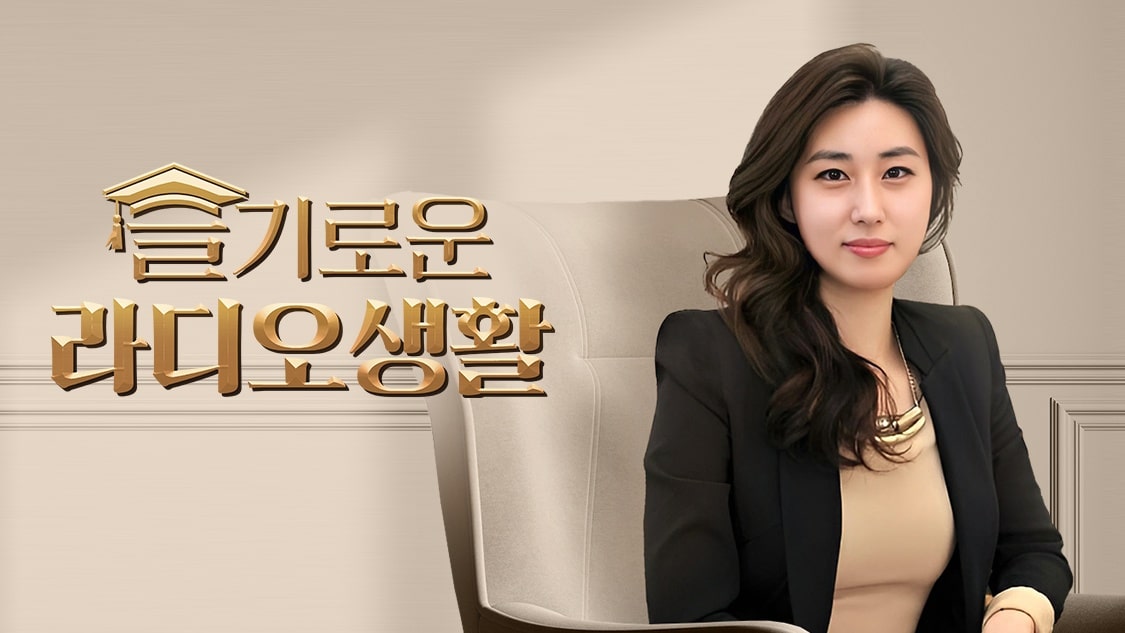

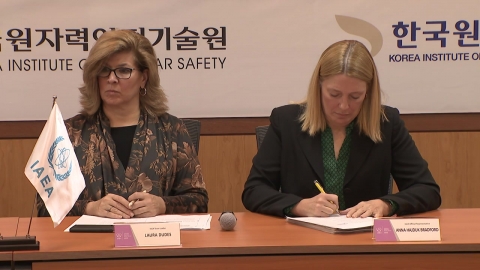
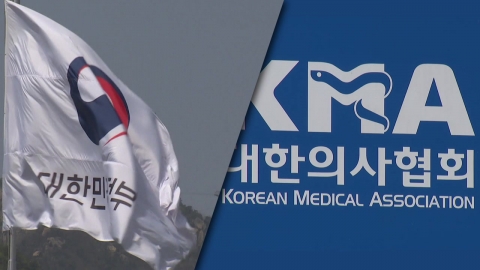
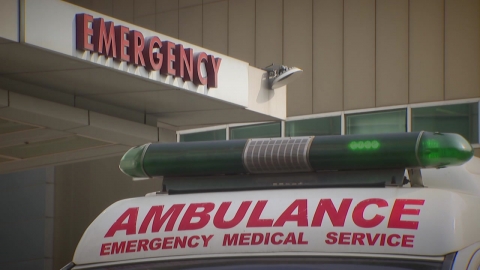


![[Y Issue] The last hint of New Jeans, sobbing eyelet...Trophies of Girls Who Can't Laugh](https://image.ytn.co.kr/general/jpg/2024/1122/202411221530125174_h.jpg)
